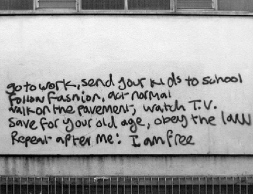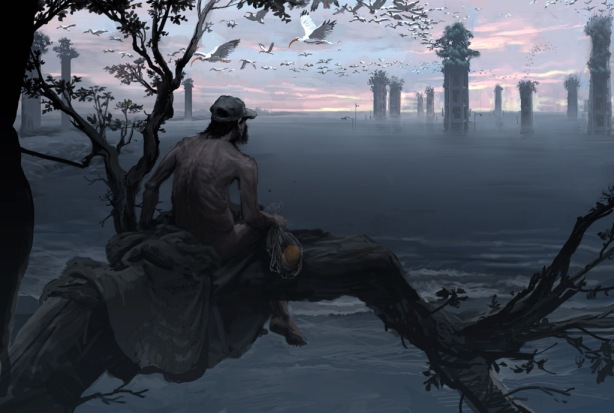Because what the internet needs is another commentary on the film adaptation of The Hunger Games . . .
Going into the release, I quickly reread the first book (for the fourth time) so that I could more easily be pedantic and nitpicky about how they adapted the film, what they chose to play up or omit, and how well it worked as a representation of the overall feel and main themes of the book. Most of the time this kind of thing leads to fannish and annoying pointing out of differences as if trying to show off what a smart, super-fan one is, but I’m going to try to stick to things that actually make a difference in overall tone.
As a whole, my take was that the films was “good but not great” for reasons I’ll explain in a second, and I’m sticking to that even if it makes me a killjoy for those who have wholly embraced it as everything awesome is supposed to be (Scott Tobias’ review at The AV Club is a pretty close mirror to my own thoughts . . . if I weren’t going to itemize and explain every detail I though worth considering). As for the latter folks swept up in the hype, which seems to be far too much of the internet, witness, for example, the simplistic, uncritical accolades from “film critic” Margot McGowan at SF Gate. McGowan’s absurd “review” is narrow in scope and merely lauds the film for not breaking the from those elements that allow for a feminist reading of the book (which is a dubious position for many reasons that other, more capable folks have pointed out). Not that it isn’t a reasonable point to care that Katniss isn’t sexed-up in the film, but in the book that concern is primarily and textually Katniss’ . . . transferred over to the reader via her inner monologue. And the ultimate choice on whether or not to go this route in presenting her is Cinna’s, which he decidedly goes against. Further, concerns McGowan raises about gender equality (in numbers of tributes? seriously?) are patently absurd, as is the ladies working together to save each other angle she generates. The film is loyal to the book on these counts, which isn’t the same as it being “awesome,” which implies levels of both loyalty and creative changes to the source material that still capture the spirit of the novel and enthrall the audience.
[major spoilers follow]
Let me start with the things the film did pretty good or exceptionally well:
(more…)


You must be logged in to post a comment.